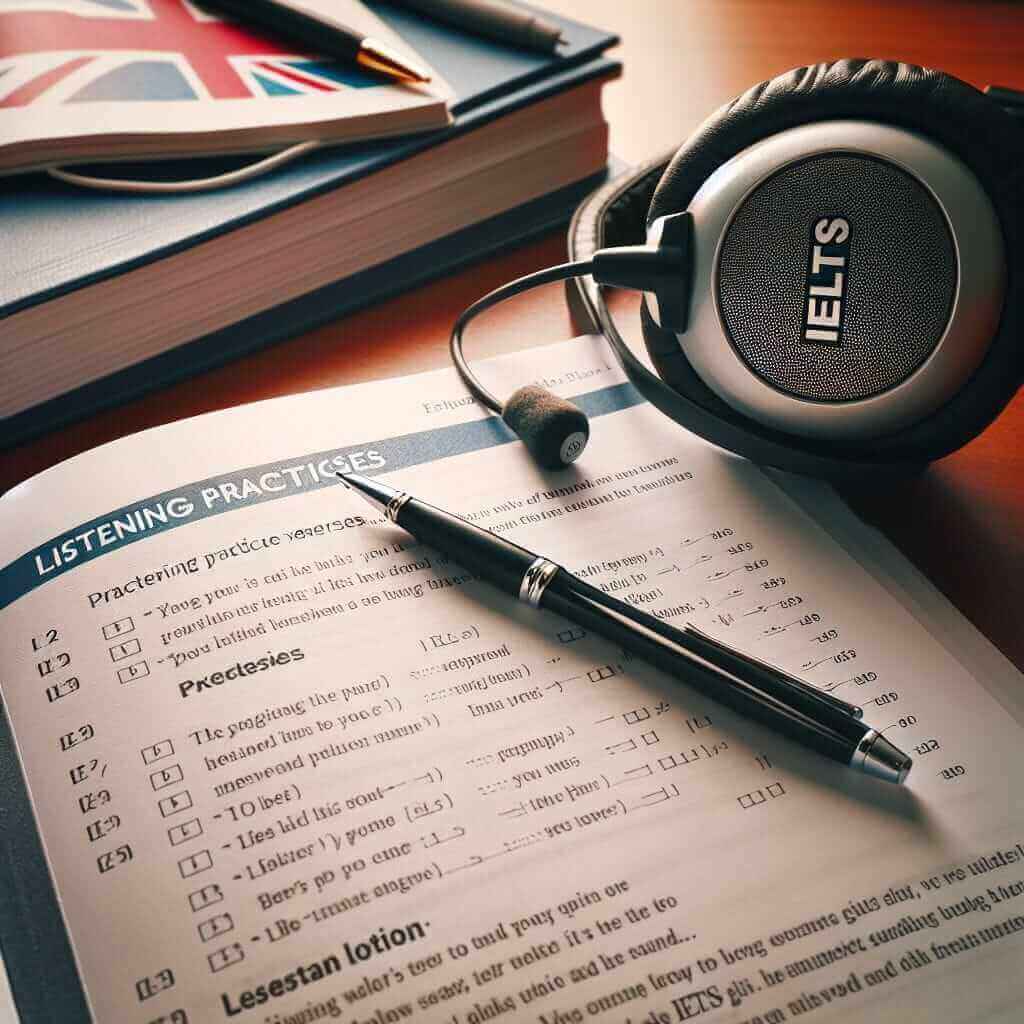The IELTS Listening section is one of the four skills assessed in the IELTS exam. Mastering it requires not just good listening skills but also specific strategies and techniques to tackle the various question types effectively. In this article, we will provide comprehensive IELTS listening practice tips, including keyword spotting, understanding different accents, using provided time wisely, and managing common pitfalls. Read on to boost your listening skills and enhance your IELTS performance.
Understanding the IELTS Listening Section
The IELTS Listening section includes four recorded monologues and conversations. Each recording is played only once, and you will answer 40 questions in total, divided into four sections. The test lasts approximately 30 minutes, with an additional 10 minutes to transfer your answers to the answer sheet.
Structure of the IELTS Listening Section
- Section 1: A conversation between two people set in an everyday social context.
- Section 2: A monologue set in an everyday social context.
- Section 3: A conversation among up to four people set in an educational or training context.
- Section 4: A monologue on an academic subject.
Common Question Types
- Multiple Choice
- Matching
- Plan, Map, Diagram Labelling
- Form, Note, Table, Flow-chart, Summary, Sentence Completion
- Short Answer Questions
Effective IELTS Listening Practice Tips
1. Listen to a Variety of English Accents
The IELTS Listening test features accents from English-speaking countries such as the UK, US, Australia, and New Zealand. Familiarize yourself with these accents by listening to:
- BBC Radio (British)
- NPR (American)
- ABC (Australian)
- RNZ (New Zealand)
2. Practice Active Listening
Instead of passive listening, engage actively by:
- Taking notes
- Summarizing what you heard
- Predicting the answers based on the conversation’s context
3. Develop Keyword Spotting Skills
Differentiate between relevant and irrelevant information. Keywords in questions help in locating answers. Practice this by:
- Identifying keywords in sample questions
- Listening for synonyms and paraphrases in recordings
Example:
If the question is “What time does the train leave?” listen for any mention of departure times, even if not stated directly.
4. Use Provided Time Wisely
IELTS provides time to read questions before each section. Make the most of it by predicting possible answers and identifying keywords.
5. Improve Your Concentration
During practice sessions, simulate test conditions:
- Complete practice tests without pauses
- Time yourself strictly
- Minimize distractions
6. Review and Analyze Mistakes
After each practice test:
- Review all mistakes
- Understand why the correct answers are right and why your answers were wrong
- Identify any recurring issues
7. Familiarize Yourself with Different Question Formats
Get comfortable with various question types by practicing numerous IELTS listening tests from:
- Cambridge IELTS practice books
- British Council’s IELTS mock tests
- Online IELTS practice platforms

Common Mistakes and How to Avoid Them
-
Overemphasizing Specific Words: Candidates might latch onto words they hear and assume they are the answers. Remember that IELTS often paraphrases.
Solution: Focus on understanding the context rather than individual words.
-
Transferring Answers Incorrectly: Common errors can occur while transferring answers to the answer sheet.
Solution: Double-check your spelling and ensure all answers are transferred accurately.
-
Not Following Instructions: Answers may be marked wrong if candidates don’t adhere to the instructions, such as “Write no more than two words.”
Solution: Always read and follow the instructions carefully.
Practical Tips for Effective Practice
- Daily Listening Practice: Engage in daily listening activities such as podcasts, news, and TED talks.
- Use Subtitles: Initially use subtitles to understand context and then practice without them.
- Shadowing Technique: Listen to a recording and try to repeat what was said word-for-word.
- Join Study Groups: Practice with peers, share tips, and discuss challenging questions.
Conclusion
Preparing for the IELTS Listening section involves consistent practice, sharpening listening skills, familiarizing oneself with different accents, and mastering various question types. By applying these tips and strategies, you can approach the exam with confidence and improve your listening performance. Remember, every listening practice session brings you a step closer to securing a high IELTS band score.
Feel free to share your experiences, ask questions, or explore other resources on our website to support your IELTS preparation journey. Good luck!